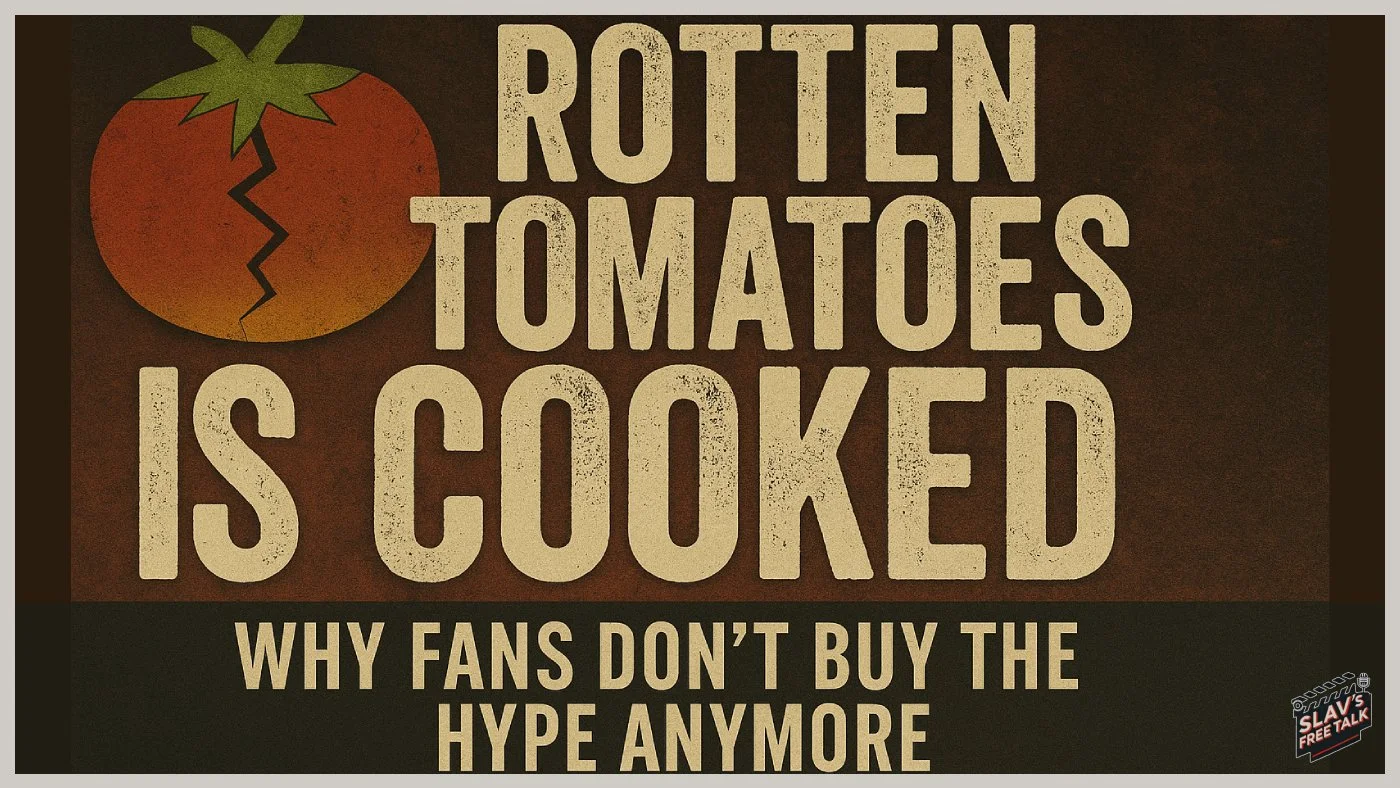Rotten Tomatoes Is Cooked — Why Fans Don’t Buy the Hype Anymore
Once upon a time, Rotten Tomatoes was the cool new kid on the internet playground.
It gave fans a quick, simple way to check if a movie was “good” or “bad”
Just glance at the score, and boom, instant verdict. It felt like the people’s platform, cutting through critics’ snobbery and giving us an easy tool to settle Friday night arguments.
Fast forward to now? The TomatoMeter’s gone soft… rotten, even. And most fans have finally caught on.
Let’s stop pretending Rotten Tomatoes ever told us the full story. The site’s scoring system was always built on a shaky foundation… a binary thumbs up/thumbs down setup that boils every review down to “fresh” or “rotten.”
That five-star masterpiece and that begrudging 6/10? They’re both “fresh.” A mixed review with a few compliments but an overall meh vibe? Sometimes still “fresh.” How does that make any sense for an industry built on nuance and taste?
It doesn’t. And fans are sick of it.
But the real kicker? Studios have been gaming Rotten Tomatoes for years. From hand-picking critic screenings to embargo shenanigans and “critic curation” (yep, that’s a thing), studios know how to tilt the score in their favor.
Especially for opening weekend buzz.
You think it’s a coincidence that some movies hold off review drops until mere hours before release? It’s all part of the game. And the game isn’t played for you…no, it’s played on you.
Then there’s the critic to audience divide… which has become a meme in itself.
How many times have you seen a film score 90% with critics and tank with audiences? Or vice versa?
The Super Mario Bros. Movie was slammed by critics and loved by fans. The Last Jedi got the opposite. Does that mean critics are wrong? Or that audiences are? No. It means this entire system treats complex reactions like a coin flip. And when that happens over and over… people stop trusting the coin.
And let’s be brutally honest. Rotten Tomatoes helped kill actual movie conversation.
Instead of reading reviews, we scan a score. Instead of diving into why a film works or doesn’t, we slap a percentage on it and move on. It’s turned nuanced critique into a scoreboard… and the studios, YouTubers, and Twitter trolls are all happy to weaponize that.
You’ve seen it, “This movie has a 93%! Checkmate!” or “It’s rotten, therefore trash!”
The worst part? Some critics tailor their reviews, consciously or not, knowing how it’ll affect that precious percentage. It's not every critic at all… hell, it's probably not most, but it's enough to tilt the scales.
Because if you're part of the pool and you know the impact your score has… that’s pressure. And pressure corrupts.
The truth is, Rotten Tomatoes isn’t a villain. It’s a tool. But like any tool, it can be misused. And boy, has it been.
Fans aren’t stupid. They’ve started turning to trusted YouTubers, podcasters, long-form reviewers the real people who actually break down the art, story, and intent behind a film.
The age of the almighty aggregate score is fading, and honestly? Good riddance.
Rotten Tomatoes will stick around. Studios will still slap that Certified Fresh logo on ads. But for the real fans? The people who care about more than just hype? That tomato’s lost its flavor.
And it’s about damn time.



